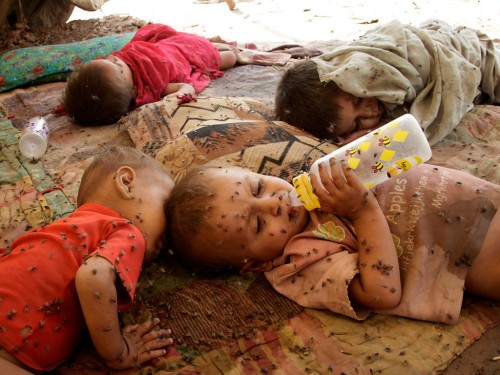Q and A: global food security
Q. I’ve just been thinking about this in light of the current situation – the worst drought in 60 years. Do you think that there is more awareness of global food security, the global food system and ‘our responsibility’?…I find this a complex issue and I think it is incredibly important we don’t forget it as other news items are prioritized.
A. Your question arrived just as the New York Times put another one of those devastating photographs of a starving child on its front page, this time to illustrate the famine in Somalia.
Like all famines, this one is politically induced. What’s going on in Somalia these days is a consequences of a lengthy colonial history. A colleague and I wrote a controversial paper about such issues more than 15 years ago (see Nestle M, Dalton S. Food aid and international hungerr crises: the United States in Somalia. Agriculture and Human Values 1994;11(4):19-27)
At the time, I was struck by how often the history of humanitarian aid repeats itself. We keep making the same mistakes.
This is because it seems—and in the case of Somalia is—much easier to deal with the immediate demand for food aid than to address the underlying politics that caused the problem in the first place.
But if we don’t deal with the underlying politics, the same tragedies occur again and again.
More awareness? I don’t see it happening—just increasing feelings of helplessness in the face of so much human misery.
What to do? I have no answers. Somalia is too dangerous for amateurs.
Readers: Thoughts? Suggestions for action?


